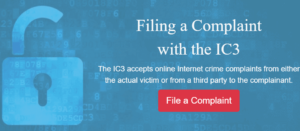Unfortunately, online scams are more widespread nowadays than ever. From copycat government websites, dating and romance scams, and holiday frauds, through phishing emails, charity scams, and Nigerian scams, and to online trading scams, fake cryptocurrency mining and cloud mining, and investment scams, there is an opportunity to be defrauded on every nook and cranny of the Internet. On this page, we will cover everything you need to know on how to report a scammer online.
If you have been scammed online, there are two general steps you should take:
With so many types of scams, it’s not easy to figure out where to report each type.
First of all, you should collect every relevant chat log, email, receipt, and phone number, since these may be required when filing a formal complaint with a government agency.
Start by reporting the scam to your local consumer protection office.
If you have been defrauded of money or other possessions, you should file a report with your local police as well.
Consider also reporting the scam to a government agency.
In the USA the Federal Trade Commission (FTC) is the main agency that collects scam reports. They accept complaints about most types of scams, including phone calls, emails, computer support scams, imposter scams, fake checks, demands for you to send money via check, wire transfers or gift cards, student loan or scholarship scams, prize, grants, and sweepstake offers, as well as identify theft.
Social Security scams which are often characterized by using robocalls, threats of arrest, lawsuits, suspension of social security number, or cancellation of your social security benefits and demands for payments should be reported using the Social Security online report form.
Internal Revenue Service (IRS) imposters should be reported to Report IRS imposters to the Treasury Inspector General for Tax Administration (TIGTA).
Threatening calls or emails claiming to be from the IRS, any website links that claim to be the IRS, but don’t start with “www.irs.gov,” and suspected tax fraud, including tax-related identity theft, should also be reported to the IRS.
State tax fraud should be reported to your state’s Department of Revenue or other tax authorities.
Fake websites, emails, malware, and other internet scams should be reported to the FBI’s Internet Crime Complaint Center (IC3).

International scams should be reported at econsumer.gov.
Scams about disasters and emergencies, including coronavirus scams, should be reported to the National Center for Disaster Fraud.
Report any scam to Trading Standards via citizensadvice.org.uk.
You should also report all types of scams to Action Fraud, the UK’s national reporting center for fraud, which can get the National Fraud Intelligence Bureau to investigate the scam.
To report a scam website, such as a fake website that will download viruses to your computer or is designed to steal passwords or other personal information, tip the National Cyber Security Centre (NCSC).
Scam emails should be forwarded to report@phishing.gov.uk (the National Cyber Security Centre)
Post scams should be reported by sending them to “Freepost Scam Mail,” along with the envelope it came in and a completed scam mail report.
Online scam advertisements should be sent to the Advertising Standards Authority (ASA).
If the scam involves financial services, such as cryptocurrency, investments, insurance, or pensions, report it to the Financial Conduct Authority, or the Pensions Advisory Service.
Finally, report imitation scams involving emails, texts, or calls that seem to be from HM Revenue and Customs (HMRC) to HMRC scams.
Report all scams to the Australian Competition and Consumer Commission (ACCC).
To make sure your scam report reaches the widest possible audience, we recommend leaving public comments with your story on various scam-exposing websites, such as ReportYourScam.com.
You can also contact us with your story if you prefer not to leave a public comment. We take every complaint seriously and publish a scam review or warning on our website.
This will make sure that when people search Google for a particular service, our scam report will show up and perhaps prevent some people from falling for that scam. All thanks to you!
In case you lost money, we can also assist you with the fund recovery process.
When your money was sent to the scammers via a wire transfer, credit card, or other fiat currency method, then you should contact the payment service provider (e.g., bank, credit card company, PayPal, etc.), and ask them to reverse the charge, explaining that you have been scammed.
However, when the money was sent in cryptocurrency (e.g., Bitcoin), you will have to use a professional recovery company to trace your money and get it back. We specialize in this sort of thing so make sure to contact us for a free consultation if you send crypto to scammers.
You can help remove the phishing and other scam websites from the Google Index by reporting them to Google directly.
Sometimes scammers clone websites, for example, to harvest leads and create a mailing list so they will be able to send spam.
This may not only damage your brand image and take advantage of your customers and potential customers but also cost you money.
If you find that your website has been cloned, what can you do?
The first step is to send a cease and desist letter to the site admin or domain registrant as soon as you discover the fake website.
To find the domain registrant’s email address, simply use a whois site, such as whois.com.
If you don’t get a response, the next step would be to send a cease and desist letter to the content management system the website runs on (e.g., Shopify, Wix, WordPress, Squarespace, etc.).
Still no response? The third step will be to send a cease and desist letter to the hosting service and the domain registrar.
If your personal information is listed on the scam website, then contact ICANN (The Internet Corporation for Assigned Names and Numbers) and report it.
If the scam site is selling any product or service, you should also file a complaint with the fraud department of the payment processor (e.g., credit card company, PayPal).
If you have been scammed by a business in the USA, Canada, or Mexico, then you can also consider filing a complaint with the BBB (The Better Business Bureau).
Now that you know how to report a scammer online, perhaps it seems like a hassle and perhaps you didn’t even lose any money and you don’t feel inclined to go through all the above processes
At least do one thing: Report Your Scam to us!
All you need to do is to leave a reply below this page or contact us privately, briefly describing how you’ve been scammed and by whom.
We will make sure that the message is spread as strongly as possible throughout the Internet and warn as many people as possible, as well as alert any government agencies if needed.
Of course, any personal information you submit to us will remain strictly confidential.

I noted three attempts to use my debit card (twice for WalMart, once for Target), plus I received a notice from my bank of a fourth attempt (Gamestop). All were rejected by the respective companies, and I have placed a lock on the debit card. I’d like to learn the identities of those who tried to use the debit card and take legal action against them. It appears all were done on the respective companys’ website.
Hi Jeff,
Thank you for sharing your experience. It’s concerning to hear about these attempts, but it’s great that your bank was proactive in rejecting the transactions and you’ve placed a lock on your debit card.
To identify the individuals responsible, we recommend filing a report with your local law enforcement and providing them with the details of the attempted transactions. Additionally, contacting Walmart, Target, and GameStop with the transaction details may help them investigate further on their end.
If you’re considering legal action or need assistance with further investigations, we can help connect you with experts who specialize in tracing and identifying scammers. Feel free to reach out if you’d like to explore this option.
Stay safe,
Ben
help! help!!
We’re here to help! Please provide more details about your situation so we can assist you better.
got 3,750.00 I am a senior citizen a
j’ai été victime d’une arnaque avec CED CAPITAL ced-cl.com
Sorry to hear you’ve been scammed by CED CAPITAL. Here’s our review CED-CL Review: https://reportyourscam.com/ced-cl/.
I am a victim of microcap fraud and my investment ($20,000)would all be gone soon and could not sell my 1,200 shares of stocks due to penny stocks. Is this the right place to report the micro cap fraud?
Dear Myrna. Thanks for reporting this and I’m sorry about your loss. Please schedule a free consultation with us to see if they can help.